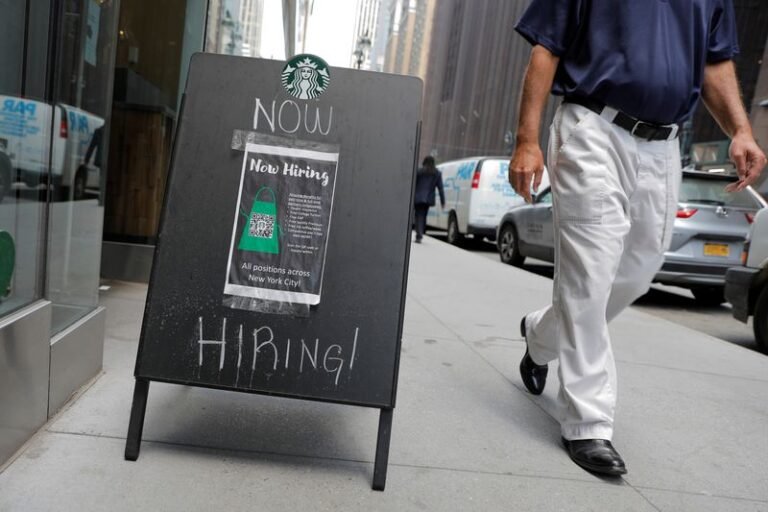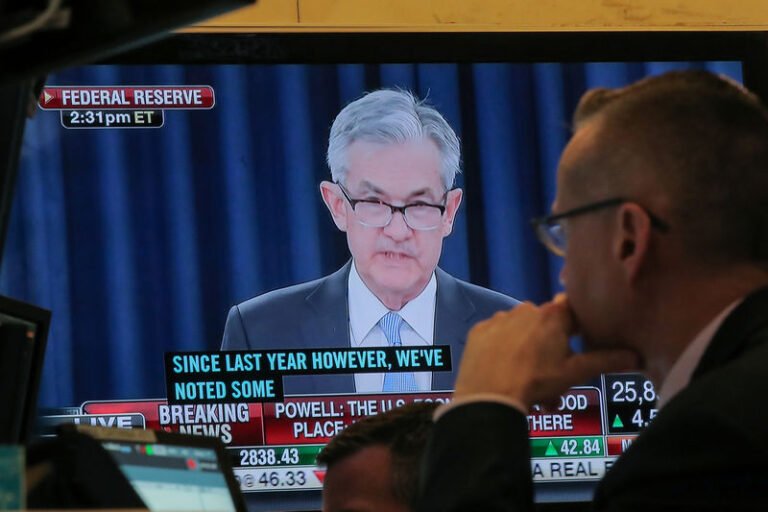The US economy, while resilient, faces several imbalances that are significant enough to cause a mild recession in the near term.
Analysts at BCA Research argue that while these imbalances may not lead to a deep recession, they are significant enough to trigger a recession.
One of the most glaring imbalances in the US economy is in the real estate sector, particularly the commercial real estate (CRE) sector.
Office vacancy rates have reached record levels following the COVID-19 pandemic. Prime office space is selling at fractions of its former value, and CRE prices are showing their worst performance since the Global Financial Crisis (GFC), with prices down 8.9% year-on-year in Q1 2024.
In addition, regional banks, which are highly exposed to CRE, face increased vulnerability. Delinquency rates in this sector are rising and a new wave of bank failures could occur if the CRE distress continues to worsen.
“The number of apartment buildings under construction topped 1 million last August, more than double the level reached during the housing bubble of the 2000s,” the analysts said.
In residential real estate, a price imbalance has emerged. Real home prices are 22% above pre-pandemic levels, pushing housing affordability to historic lows.
With fewer home purchases, homebuilders have scaled back starts, further dragging down housing investment.
Housing investment typically shrinks in preparation for a recession, and current data from the Atlanta Fed’s GDPNow model shows an annual decline of 8.5% in the third quarter.
Consumer behavior is another major imbalance in the economy. The personal savings rate has plummeted to just 2.9%, less than half its 2019 level.
While personal spending grew by 5.3% last year, disposable income grew by only 3.6%, forcing consumers to rely on savings.
However, the depletion of pandemic-era savings suggests that consumer spending will likely slow in the coming months.
In addition, income growth is expected to slow further as wage growth slows and the labor market weakens. The average work week is shrinking, which, combined with slowing compensation, is likely to put downward pressure on wage income.
Rising delinquency rates on credit cards and auto loans, now at their highest levels since 2010, suggest that consumer lending cannot be relied upon to sustain consumption.
Banks have responded by tightening lending standards, making it harder for consumers to rely on credit.
The manufacturing sector is also showing signs of pressure. New manufacturing orders fell to 44.6 in August 2024, the lowest level since mid-2023, reflecting weak demand both at home and abroad.
Surplus spending on consumer durables, which increased during the pandemic, continues to weigh on the sector.
Although spending has moderated, it remains well above pre-pandemic levels, suggesting that demand for manufactured goods is unlikely to pick up again in the near term.
Global factors such as China’s economic slowdown and Germany’s loss of competitiveness are also weighing on US manufacturing.
China’s shrinking domestic demand has led to a surge in exports, contributing to global oversupply, while Germany’s rising unit labor costs make it less competitive within the Eurozone.
Fiscal policy, which traditionally acts as a countercyclical tool during recessions, is constrained by an unprecedented fiscal deficit of 7% of GDP. This limits the government’s ability to implement measures to stimulate the economy during a recession.
In addition, state and local government spending, which has been a major contributor to GDP growth in recent years, is expected to decline in 2025. With fewer resources for fiscal intervention, the US may struggle to weather the effects of an economic slowdown.
Equity markets, too, are showing signs of vulnerability. While a mild recession might not cause serious damage to the broader economy, it could cause a correction in stock prices.
The S&P 500 currently trades at 20.8 times forward earnings, a 42% premium to fair value estimates.
If the US slips into recession, equity markets could see a decline similar to the 2001 recession, when the S&P 500 fell 49% from peak to trough despite a mild economic contraction.
At Bro In Finance, we are committed to helping traders navigate the complexities of the forex market. Our in-depth analysis, expert insights, and advanced tools empower you to make informed decisions and achieve your trading goals. Whether you’re a beginner or an experienced trader, Bro In Finance is your trusted partner in mastering the forex market. Visit our website for more trading tips and strategies to enhance your trading experience.
Check out our on Best Forex Brokers to know more about this topic
Check out the most crucial steps that you need to take when choosing your forex broker
Have you heard about an amazing Broker Platform called “AVATRADE“? We at Bro In Finance do recommend this amazing broker.
Check out here to figure out the best funded trader program: Which Funded Challenge is Best
Written by D Fernando






















+ There are no comments
Add yours